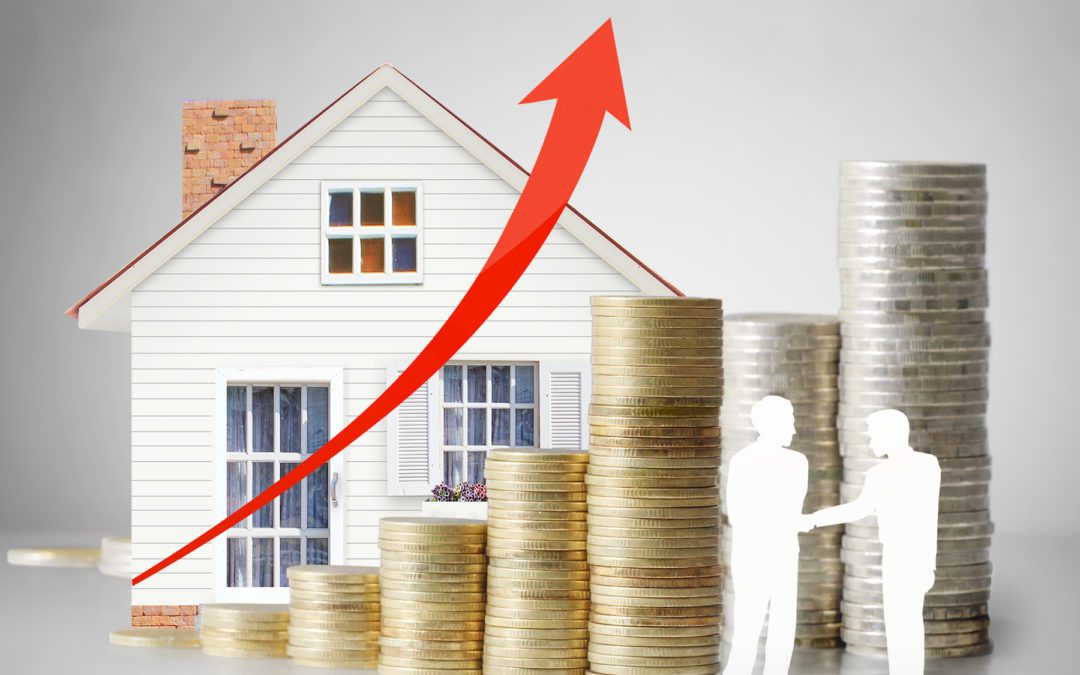How the Coronavirus Pandemic Pushed Home Prices to a Record High
Who would have thought that this summer, with the number of COVID-19 cases surging and new rounds of restrictions and shutdowns, would yield one of the most competitive housing markets in recent memory? Nonetheless, home prices have hit record highs as buyers are battling it out across the nation over a limited selection of reasonably priced abodes.
In July, the median home price shot up 8.5% year over year, to hit a new all-time high of $349,000, according to the most recent realtor.com® data. And those mind-boggling high prices, shooting up in the middle of a recession with the worst unemployment since the Great Depression, are a direct result of the pandemic.
Buyers paid a median $27,000 more for a home in July than they did last year because the supply of available properties for sale plummeted at the same time that demand for them had skyrocketed.
“When the pandemic helped tip the U.S. economy into recession, most homeowners and home buyers braced for falling house prices,” says realtor.com Chief Economist Danielle Hale. “That’s what happened in the last recession. But that’s not what we’re seeing in today’s market. We had a housing shortage already, and the pandemic has created conditions that have only worsened it.”
The total inventory of homes on the market is about a third less—roughly 440,000 properties short—than what existed last summer. In some parts of the country, new home construction was delayed or paused in the spring in the beginning of the pandemic. Meanwhile, many sellers nervous about contracting COVID-19 from buyers touring their homes put off plans to list their residences or pulled them off the market. Many of those listings have yet to go back up.
This intensified housing shortage collided with scores of buyers hoping to quarantine in larger abodes and take advantage of the lowest mortgage interest rates ever.
Buyers who were sidelined by the virus in the spring are now jockeying with those who had planned to buy in the summer. And they’re competing with those who had no plans to move until the stay-at-home orders created a burning desire for additional square footage and a big backyard in which to ride out the crisis.
Record-low mortgage rates have added fuel to the fire as homeownership is now more affordable for buyers. They dipped below 3% for the first time in the week ending July 16, according to Freddie Mac. (They have since ticked up to 3.01% in the week ending July 23.) Those shrunken rates can greatly reduce monthly mortgage payments.
The reduced rates are a consequence of the federal government’s actions and the response of investors to the turbulent economy.
“We have this market imbalance tipped pretty solidly in favor of sellers at this point,” says Hale. “Yet many homeowners believe that now is still not a good time to sell.”
This has led to a return to bidding wars and offers over asking price, which is helping to drive up home prices. And it doesn’t look like they’ll be coming down anytime soon.
Prices shot up even more in the latter half of the month, rising a median 9.1% in the weeks ending July 18 and July 25 compared with the previous year, according to realtor.com data.
Where are home prices rising the most—and where are they down?
Some Northeastern housing markets that were devastated in the spring by the pandemic have rebounded—and then some—as their number of positive cases has fallen. But prices are also up in California and Midwestern cities where the residents are currently being infected at higher rates.
Of the 50 largest metropolitan areas, annual prices rose the most in Pittsburgh. Median prices in the Steel City and surrounding area were 25% higher in July than the previous year, hitting a median $249,950.
Metro areas include smaller towns, cities, and suburbs. These areas outside of the densely packed cities where buyers can get more square footage and outdoor space for their money and have an easier time maintaining social distance have become more popular as the pandemic has dragged on.
Pittsburgh was followed by Los Angeles, where prices rose 24.3% year over year, to $994,154. Next up was Philadelphia, up 18.5%, to $340,000; Cincinnati, up 18.5%, to $339,950; San Francisco, up 15.3%, to $1,054,210; Cleveland, up 13.5%, to $235,050; Boston, up 12.5%, to $675,050; Kansas City, MO, up 12.3%, to $351,025; Washington, DC, up 11.6%, to $529,995; and Providence, RI, up 11.4%, to $434,500.
“The U.S. housing market performance is closely mirroring COVID[-19]’s path, which is providing clues into what we can expect for various housing markets in the months to come,” Hale said in a statement. “After being particularly hard hit in March and April, new coronavirus cases remain stable in the Northeast and we’re seeing buyers return to the market in force.”
Home prices fell in only two of the nation’s 50 largest metros: Miami, where they dipped 1.5% compared with last year, and Orlando, FL, where they ticked down 0.9%. Median home prices were $403,826 in Miami and $320,050 in Orlando. The Florida cities have been hard-hit by the coronavirus, which may help to explain the declines.
The post How the Coronavirus Pandemic Pushed Home Prices to a Record High appeared first on Real Estate News & Insights | realtor.com®.
Selecting the Right Homebuyer's agent
 Unlike most other real estate agents, a MABA home buyer's broker never represents both a buyer and seller in the same transaction so you never have to worry whether a MABA agent is really looking out for your best financial interests. A MABA buyer's agent acts as your advocate, real estate educator, advisor and negotiator, always loyal to you and dedicated to helping you find and buy the best home with the best terms at the price and showing you which homes to avoid along the way.
Unlike most other real estate agents, a MABA home buyer's broker never represents both a buyer and seller in the same transaction so you never have to worry whether a MABA agent is really looking out for your best financial interests. A MABA buyer's agent acts as your advocate, real estate educator, advisor and negotiator, always loyal to you and dedicated to helping you find and buy the best home with the best terms at the price and showing you which homes to avoid along the way.
Fewer than one percent of the agents and brokers in Massachusetts meet our high standards.
Whether you are ready to buy now or just beginning your home buying journey, click here to choose a Great Buyer's Agent to answer all of your home buying questions!
Tags used in this Real Estate Homebuyer in Massachusetts blog post:
#HomeBuyers #BuyersAgent #Boston #ma #RealEstate #HomeBuying #Broker #home #homesforsale
Article From: "Clare Trapasso" Read full article
Get Started with MABA
For no extra cost, let a MABA buyer agent protect your interests



